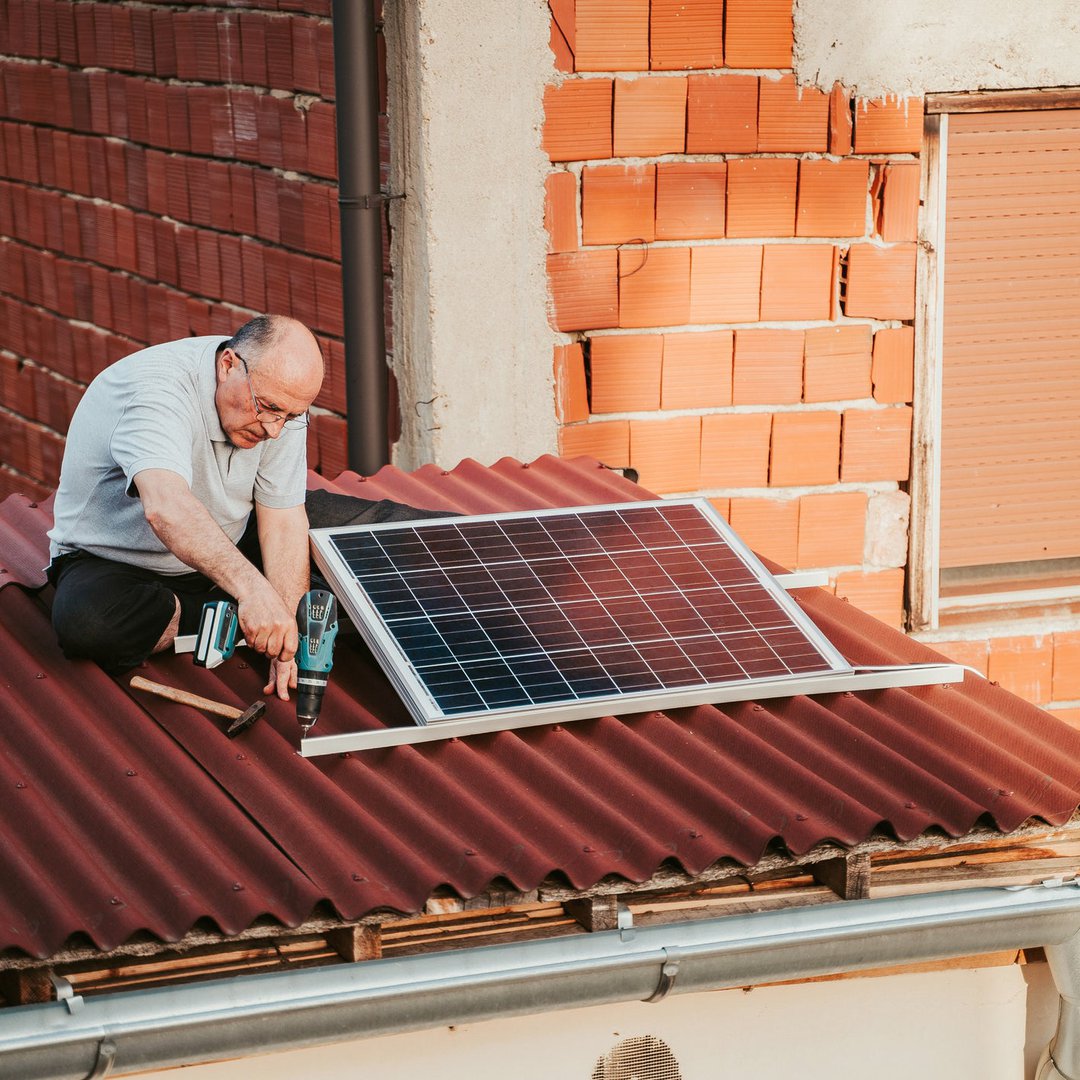
Of all the investments you make throughout your lifetime, few will feel as personal as your home. Once you sign a mortgage, you commit yourself to protect your new investment. That means making decisions about the property, including steps you will take to enhance its value. One method of improving your home's value is to install solar panels. In short, solar panels convert sunlight into electricity, cutting down on the amount of energy you must purchase each month. Here, we'll examine whether solar panels are worth the price you pay for them.
Start your journey to financial success with a bang
Get free access to the select products we use to help us conquer our money goals. These fully-vetted picks could be the solution to help increase your credit score, to invest more profitably, to build an emergency fund, and much more.
By submitting your email address, you consent to us sending you money tips along with products and services that we think might interest you. You can unsubscribe at any time. Please read our Privacy Statement and Terms & Conditions.
Do solar panels save money?
The short answer is yes, solar panels save money. In addition to helping the environment by reducing greenhouse emissions, solar panels allow you to keep more money in your bank account each month. You save by using less electricity, a saving that kicks into high gear once you've cut enough in electricity bills to recoup the installation cost. You're also likely to make more money when you sell your home.
How much do solar panels cost?
According to HomeGuide, the average cost of installing solar panels (after the 30% federal solar tax credit) ranges from $10,626 to $26,460. Your final price will depend on how many panels are required to meet your energy needs.
The number of needed kilowatts determines the total number of panels and final cost. The greater the number of panels, the higher the number of kilowatts. And it's the kilowatts that establish the percentage of electricity replaced. A 12-kilowatt system will cost more initially than a 6-kilowatt system, but it will save you more money over time.
How long does it take to recoup your investment?
How long it takes to earn back your initial investment depends on how much you spend on your solar panel project. If you snag a system for under $11,000, it will take about seven years to recoup the cost. If your initial investment is closer to $26,000, it will take 12 years to break even. Once your solar panels have saved enough in energy costs to pay for themselves, all other savings are a bonus.
Increase in home value
In addition to saving energy, installing solar panels can increase the value of your home. According to Zillow, homes with solar panels are worth up to 4.1% more than comparable homes without solar panels. Let's say homes similar to yours sell for $400,000. With solar panels, your home is more likely to be worth around $416,000.
Financing solar panels
If you don't plan on paying cash, it's still possible to purchase solar panels. Here are three options:
Personal loan
Most personal loans are unsecured, meaning you are not required to secure the loan with collateral. The interest rate is likely to be a bit higher than a secured loan would be, but there's no risk of losing your collateral if you miss payments.
If you have a high credit score, you're likely to be offered the lowest interest rate available. If you have a poor credit score, take a look at a personal loan for bad credit. You don't have to worry about shopping around for the best deal because most lenders only pull a soft credit check before letting you know whether you qualify. If your credit score is very low and the interest rates you're offered are high, consider taking time to improve your credit score before proceeding with the project.
Government loans
The PowerSaver loan, offered through the Federal Housing Administration allows homeowners to finance energy saving upgrades. There are two options: PowerSaver Second Mortgage or the PowerSaver Energy Rehab 203(k) loan. These loan programs typically require a minimum credit score of 660 and a debt-to-income ratio of 45%.
Home equity loan
A home equity loan makes it possible to borrow money from the equity in your home. Typically, a bank will finance up to 85% of the equity in your house. For example, if your home is worth $300,000, but you only owe $200,000, you have $100,000 in equity. Of that $100,000, the bank is likely to lend you up to $85,000. One nice thing about home equity loans is that they generally come with a low interest rate. That's because your home is used as collateral and the bank knows it won't lose its money. That said, think carefully before committing your home as collateral.
It's not often in life that you can do something nice for the planet while also benefiting your bank account, but solar panels provide a simple way to meet both goals.
"save" - Google News
June 30, 2021 at 08:00PM
https://ift.tt/3xbnM0n
Can Solar Panels Actually Save You Money? - Motley Fool
"save" - Google News
https://ift.tt/2SvBSrf
https://ift.tt/2zJxCxA
Bagikan Berita Ini














0 Response to "Can Solar Panels Actually Save You Money? - Motley Fool"
Post a Comment